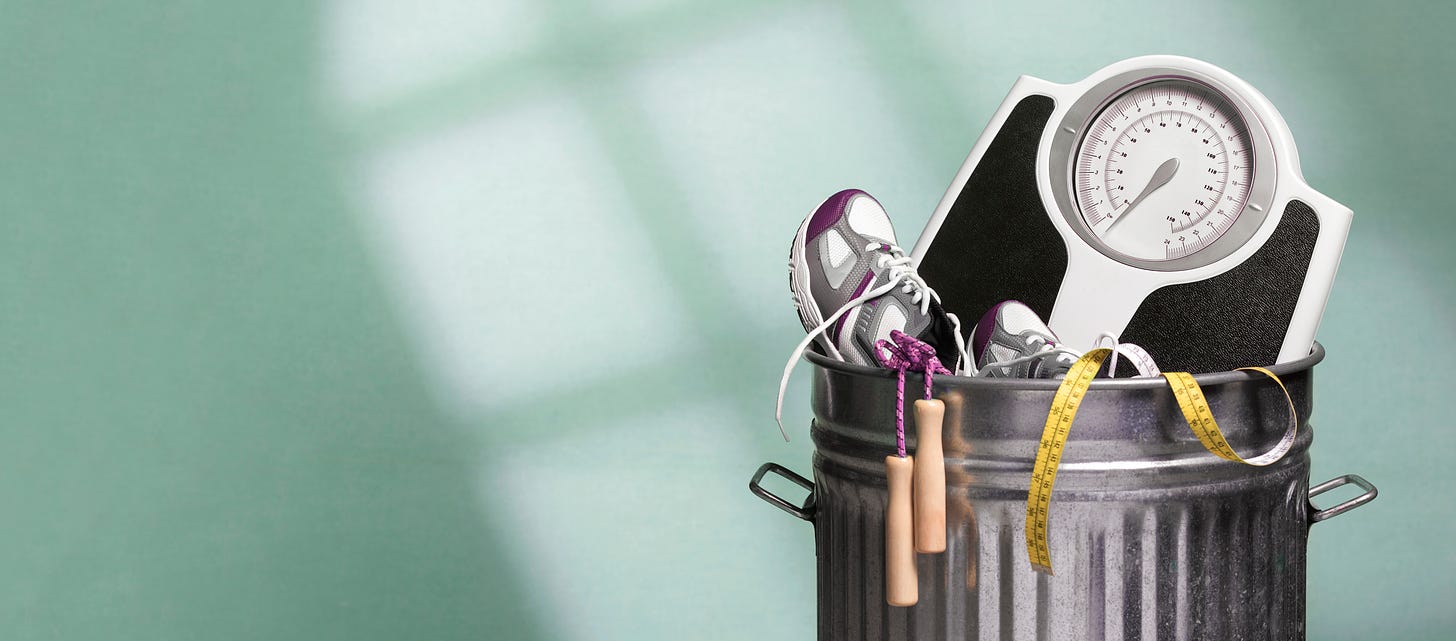"I Told My Nephew My Weight Was a Secret."
And how do I size a car seat without talking about weight? It's Ask Virginia: Kids and Scales Edition.
Over the past two years of writing this Ask Virginia column in this formal-ish way, I have noticed that sometimes, judging at least from the questions you send in, it seems like the same issue is on everyone’s mind at once. Maybe it’s seasonal, maybe it’s the zeitgeist, maybe it’s one of those moments where we think we just happen to like a blue sweater but actually it’s because Meryl Streep decided we would three years ago.
Whatever the reason, whenever I start getting three, five, fifteen versions of the same question in a month, I know it’s time to talk about the thing. And this month, that thing is kids and weight, which lots of you are feeling stumped by. Of course, we talk about navigating anti-fat bias with kids all the time here. But that doesn’t mean we know how to talk to kids about weight (their weight, our weight, anyone’s weight). And I’ve picked these two questions, from the many variations on this theme that we receive, because they so perfectly encapsulate a common way I see folks responding in the moment to kids’ questions about weight: By freezing up and trying to answer perfectly. Which only ensures we respond in ways that feel deeply imperfect.
This is a lingering diet culture mentality, of course. Maybe you’re still working through your own discomfort talking about weight, so these questions trigger your own anti-fatness. Or maybe it’s not so much about the fatness, and more about how you still crave solutions that break down into three easy steps and gold stars for getting them all right. But you don’t have to have the perfect response every time your child mentions weight or fatness or bodies. Our kids can see us get this wrong and try again and learn alongside them and from them.
So I am going to suggest what to say to kids when weight comes up—in the case of these two questions either because you have to weigh them for a mundane reason like car seat sizing and want to make sure it doesn’t get weird, or because they asked and then it definitely got weird. But remember, this is much less about memorizing a perfect response and much more about just making sure the conversation happens in the first place.




